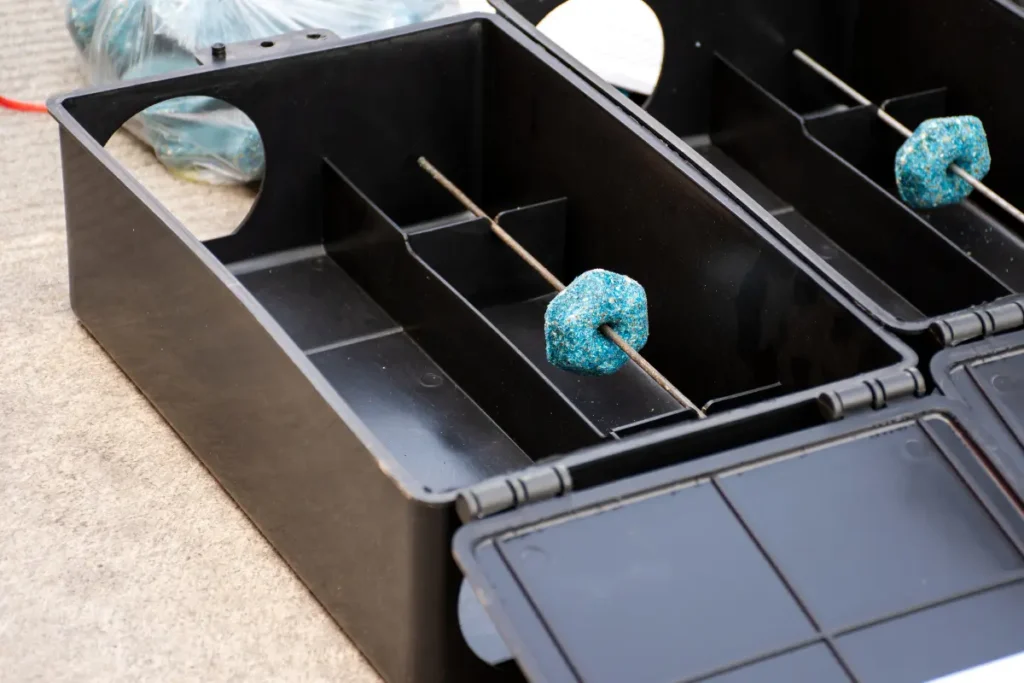Attics are the spaces between the house’s topmost floor’s roof and ceiling. They’re generally covered with insulation and, sometimes with heating and cooling equipment. Do rats climb into the attic for any reason?
Yes, rats climb into attics, most people think that rats prefer to stay on the floor level, but they are just as capable of climbing up attics and turning them into their homes. Roof rats are gurus of gaining entry to attics because they’re excellent climbers.
Roof rats prefer to build their nests at the higher levels of a house-Attics where the heat rises. Read the full article to know more about, why rats climb into the attic.
How Would A Rat Get In my Attic?
Rats can get into the attic through damaged ceilings and vent openings. They can climb on every surface and squeeze into most locations.
Rats breed quickly, so a few rats inside the attic might quickly turn into a widespread infestation.
Roof rats and Norway rats are the two most common rat species. Roof Rats prefer warm climates and prefer to live in attics.
It has silky hair and a long tail and is generally black. Norway Rats are brown rats that prefer sewers and basements to live in.
What Are The Signs Of Rats In The Attic?

Following are some signs to find out about rats infestation in the attic:
- Rats produce a foul odor. They also rip holes in garments and wooden drawers and leave grease traces and tracks.
- The most obvious symptom that the attic has a rat infestation is rat droppings.
- Rats urinate regularly, it will have a strong ammonia odor and will turn stale and much more unpleasant with time.
- Shredded textile fibers in attics, which means the attic have an infestation.
- Rodents are noisy, nocturnal critters, if s you hear them at night near attics.
Do Rats Go In And Out Of The Attic?
Yes, rats go in and out of the attic in search of food and water. Rats prefer to live inside buildings because they do not like being noticed, thus they prefer to live inside the walls and attics.
They are active all year and can reproduce in large numbers. As a result, if not handled correctly, rats in the attic can rapidly become a problem.
They acquire food and supplies from outside while nesting in the attic, thus they exit and re-enter the attic during the night, which might cause noise in particular regions.
What Does It Sound Like If You Have Rats In Your Attic?
Rats create a variety of noises in the attic, including biting and nibbling as they move around or nibble on walls and cables, as well as a scrambling sound as they move fast over the attic.
Mice make chirps and squeaks, but rats communicate at a frequency that humans can’t hear. Rats are nocturnal, so even if you’re home and near an attic, you won’t hear their daytime.
You may hear rodents chewing through the walls on the lower floors of your home as they nibble through the walls.
How Long Can Rats Live In An Attic?
Roof rats invade attics when the weather cools, and they will occupy your attic during the colder fall and winter months.
Roof rats have a one-year lifespan because of hunters and pest control. Roof rats are expected to live for a maximum of four years.
The breeding season for roof rats occurs primarily in the springtime. A typical roof rat litter contains 4-6 babies. Each year, roof rats can have up to six litters.
How Long Can A Rat Live In The Attic Without Food or Water?
Rats require the same amount of water as they do food. In reality, the food they eat the whole day provides them with water. Rats are the polar opposite of humans.
Whereas humans can only survive for a few years without drinking water and days with no food, rats can survive without water for far longer.
Most people could probably go for a week without eating, but not more than two weeks.
Rats, like squirrels, enjoy storing their food. One study from the United Kingdom discovered that rats have an average lifespan of 1.8 years.
Only around 5% of rats live for three years or longer, according to estimates.
Do Rats Leave The Attic During The Day?
No, rats don’t leave the attic during the daytime they spend the entire day sleeping in the attic.
Rats sleep in the attic during the day, then wake up at dusk and begin moving around, which is why we hear a noise at night when they go out in search of food and water.
Rats emerge from the attic at night to seek food and water. They come back to the attic after that.
They don’t normally stay in the attic for long. Because rats leave for short durations and all don’t leave at on same time during the night.
Will Rats Leave The Attic In Summer?

Rats can’t stay in high temperatures for long periods, whether it’s outside or inside the attic, because rats haven’t adapted to withstand high humidity and temperature as they have nocturnal nature.
When the average temperatures are too hot for them, they will immediately dehydrate and die within moments of entering the attic.
During the summer, rats leave the hot attic if the temperature gets unbearable and they start getting dehydrated.
However, as long as these rats have access to fresh air from outside, they will be able to tolerate the high temperatures inside the attics for a shorter time.
How Long Does It Take To Get Rid Of Rats In The Attic?

Rats have very sensitive internal systems, it usually takes 3 to 1 week to get rid of them with rat poison. Poison gradually breaks down blood coagulation inside rodents, causing their blood to infect their systems and kill them.
A rat trap is an excellent method for getting rid of rats. Because rats are sometimes suspicious of mechanical traps, it can take a couple of days for them to be caught.
Depending on the amount of the infestation, a pest control professional can eliminate rats in one day or a few days if the infestation is larger.
Can I Put Rat Poison In My Attic?

No, it isn’t ideal to put rat poison in the attic rat poison appears to be a simple remedy to a rat infestation but rat poisons should only be used outdoors and in combination with only rat traps.
If rat poison is put in the attic it causes rat death inside the attic and the location of their death becomes a problem.
A rat can die in the attic and slowly decompose, emitting a strong odor for months.
The fleas and ticks on the rat will not die just because the rat is dead. Ticks that can spread Lyme disease are left after poisoning a rat.
Conclusion
Rats can get entry to the attic through broken ceilings and vent openings. They can get into attics and reproduce quickly, so a few rats in the attic can quickly become a large infestation.
Rat droppings, shredded textile fibers in attics, and noises during the night as they leave the attic in search of food and water are the most evident signs of a rat infestation.
They don’t generally stay in the attic during the summer since rats haven’t adapted to high humidity and warmth. When the average temperature is too high for them, they will quickly dehydrate and die on entering the attic.
References



